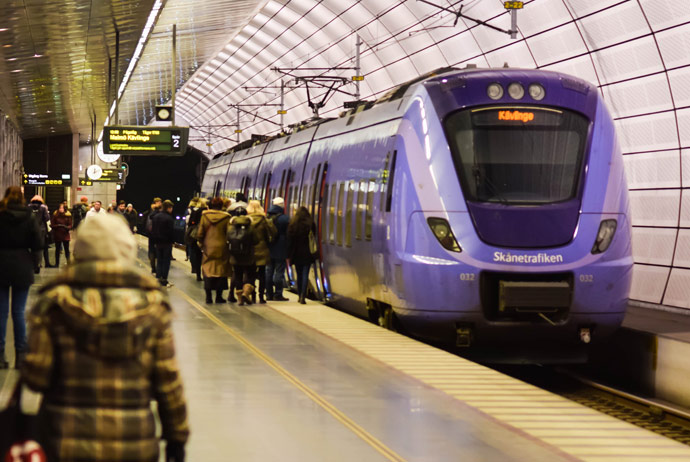More than 100 participants from around the world including practitioners, civil society organisations and railway stakeholders attended this online conference organised by UIC on 28 October 2020 to discuss the results so far of the PROACTIVE (PReparedness against CBRNE threats through cOmmon Approaches between security praCTItioners and the VuleranblE civil society) project.
The EU H2020 project PROACTIVE started 18 months ago and has just reached the halfway point, which is an ideal time to discuss project outputs thus far, how the project will continue the work going forward, and ways in which the project results could be transferable to Europe’s Covid-19 response.
PROACTIVE has received funding from the European Union’s Horizon 2020 research and innovation programme under grant agreement no. 832981.
After an introductory presentation by Philippe Quevauviller, European Commission, DG HOME, who highlighted the importance of the CBRN topic within the Community of Users, the conference was opened by Jerzy Wisniewski (UIC Director of Fundamental Values Department) on behalf of François Davenne (UIC Director General). He pointed out the relevance of CBRN projects for the railway sector:
“At UIC – the worldwide railway association – we acknowledge that security is a fundamental value of the railways. Stations and trains can be easily targeted by terrorists because of their open nature, and their protection is still very challenging because rail transport needs to remain open, attractive and easily accessible.
The EU SHERPA project led also by UIC Security Division held its final conference two weeks ago focussing on the protection of stations and trains against terrorist threats. It was acknowledged that, among all the railway threats, Chemical, Biological, Radiological, Nuclear and Explosive (CBRNE) attacks represent a priority for railway security.
CBRN incidents, whether accidental or terrorist-based, can have a high impact on society and the railway sector. CBRN agents can easily spread on railway premises and rolling stock because of the closed spaces and ventilation systems, possibly contaminating a large number of people present at stations and onboard passenger trains. Freight operators are also concerned when transporting dangerous goods such as chemicals. In addition, crisis response to a CBRN incident requires good partnership between railway companies and public authorities.
UIC’s vision is that EU-funded research can help railway stakeholders be better prepared for the future. EU projects can help UIC members with practical research results and innovative security solutions regarding emerging threats.
Therefore, since 2010, the UIC Security Division has participated in 13 EU research projects, in the role of coordinator, leader for dissemination, organizer of field studies or to express the needs and requirements of the railway end-users.
Past projects have addressed a wide range of topics and PROACTIVE project represents a new step in the CBRN topic, while complementing the topics addressed by previous UIC security research projects.
Besides coordinating EU-funded projects, the UIC Security Division is also a member of the EU Community of Users (CoU) which is a good opportunity to strengthen the cooperation between the railways with other end-users and public authorities in charge of the safe, secure and resilient societies.
On behalf of the UIC Director General, François Davenne, I would like to thank the 14 partners of project PROACTIVE for their intensive work under the coordination of UIC and I’m also very happy to see that many UIC members are involved in the project as a consortium partner or Advisory Board member. We are confident that the results of this project will help the railway sector be better prepared against a CBRN incident.
Thank you everyone for the work already accomplished and for your continued commitment in fighting against crime and terrorism altogether. I wish you a lot of success for this mid-term event and for the second half of the project and I hope to see you again for the final conference!”
